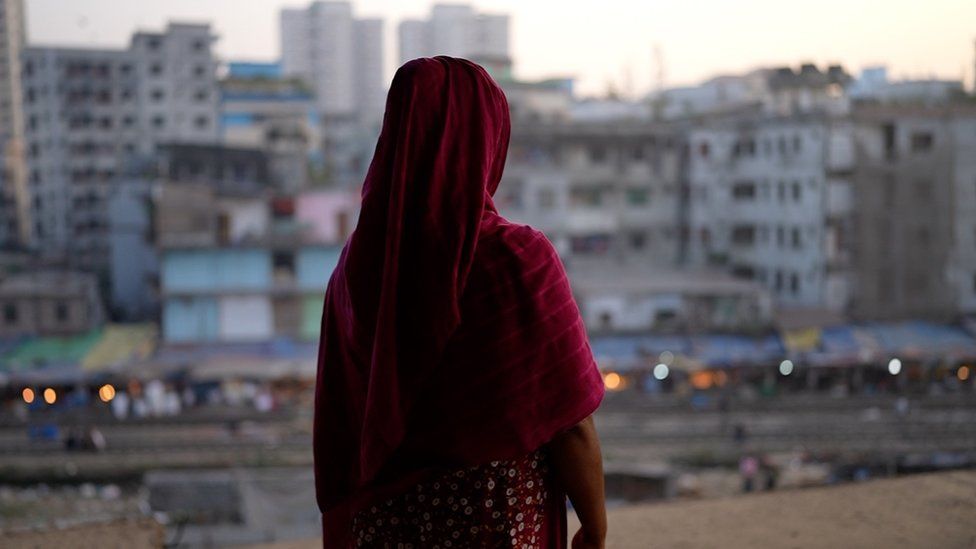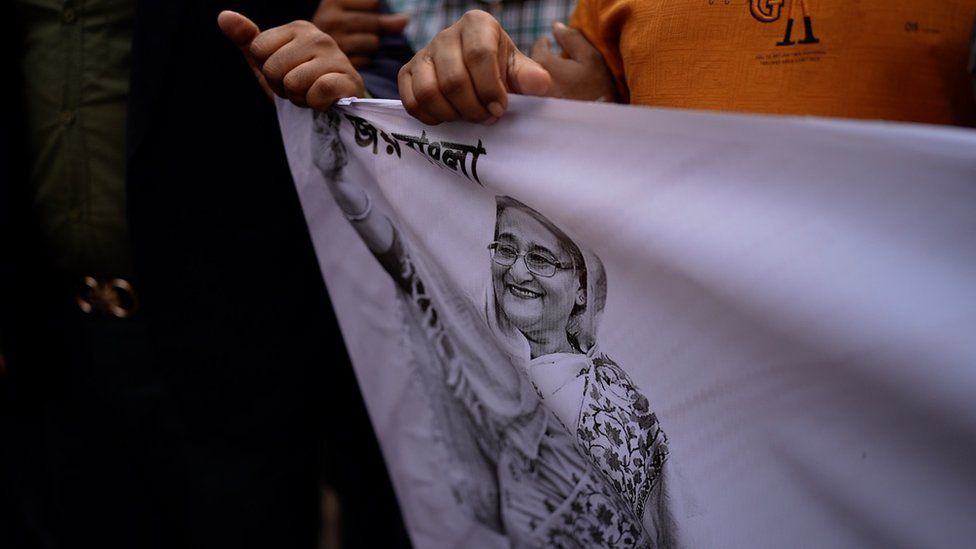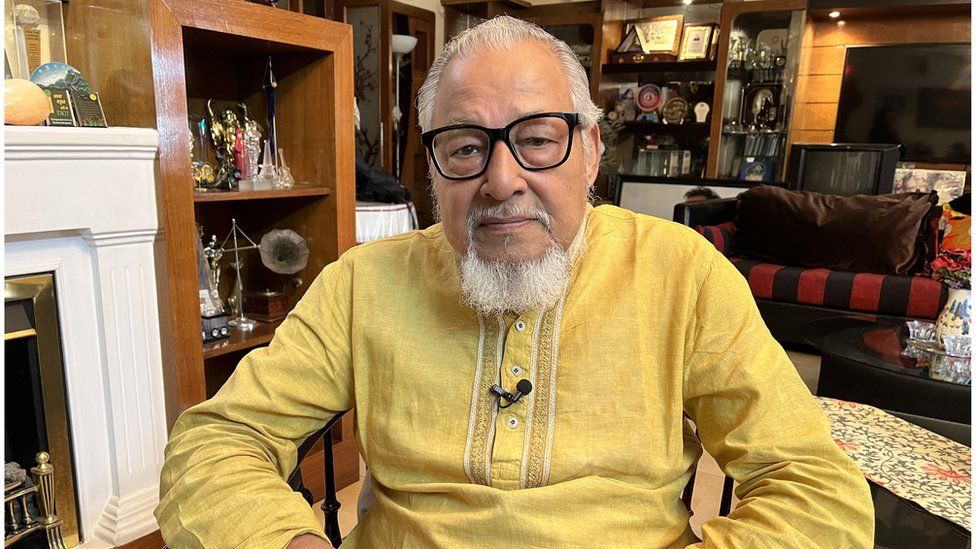
A woman, a mother and now a widow. She asked us not to use her name.
She has a story to tell but she is afraid to speak in public. We venture along railway tracks to find a quiet place where we can speak privately.
Moving away from a crowded marketplace, we head to an abandoned building. Three flights up we stand on a platform with a clear view of the city. The call to prayer echoes in the background. She tells me about her husband.
He was a well-known worker for the Bangladesh Nationalist Party (BNP), the country’s main opposition political party. He loved to sing, especially sentimental songs – a big-hearted man who happily indulged his wife and kids. He was arrested by police last year. Just 26 days later, his son got a call. His father had died in jail.
“Days earlier my son saw his father, healthy,” she said. “My son asked them how he died and they said, we don’t know. Just come to the morgue and take him.”
When the wife saw her husband, she said he had marks all over his body, hands and face. Authorities told her he had died of natural causes. But she believes he was tortured.
“Now my son can’t call his father, I can’t replace the love a father will give. Who will give the father’s love? Now I want justice for my husband.”

Human rights organisations say politically motivated arrests, extrajudicial killings and other human rights abuses have risen under Prime Minister Sheikh Hasina’s government.
A recent report by Human Rights Watch (HRW), said the “violent autocratic crackdown” by Bangladeshi authorities was a clear attempt to quash the opposition before the elections. “This all seems like there is no space for dissent or criticism that is so crucial to a functioning democracy,” says Meenakshi Ganguly, Deputy Director of Human Rights Watch, Asia Division.
Given the crackdown on dissent, the BNP said it will boycott Sunday’s elections. With no real opposition contesting against her, Prime Minister Sheikh Hasina and her Awami League party are all but assured a fourth consecutive term in office.
The government denies allegations of silencing critics and says it is committed to holding free, fair and participatory elections on Sunday. “Let me make one thing clear – we are not gagging anybody,” said Ainsul Haq, the Minister for Law, Justice and Parliamentary Affairs. “Everybody has the right to speak out and we would welcome anybody to come and speak.”
It’s a hard sell to BNP activists. According to HRW, more than 10,000 of their supporters and party leaders are in prison.

“Yes, you can speak freely but nobody is going to take responsibility for the consequences,” said Nasrul Islam, a senior leader of the BNP. He said people who spoke freely were arrested, beaten, tortured and then some of them were killed in jail. Even he takes precautions, no longer sleeping in his house at night, because “that’s when authorities come and arrest people.”
The widowed woman says her late husband’s political activities have her worried about her and her family’s safety.
“We are scared – there are a lot of Awami League supporters in the area. They will harass me and my son,” she said.
Despite the fear, she still believes her husband did the right thing, for his country. She does not believe in the legitimacy of these elections, saying there is an excessive use of force.
“He died, he left us. For this reason I will not vote.”
Additional reporting by Andrew Clarance
BBC
